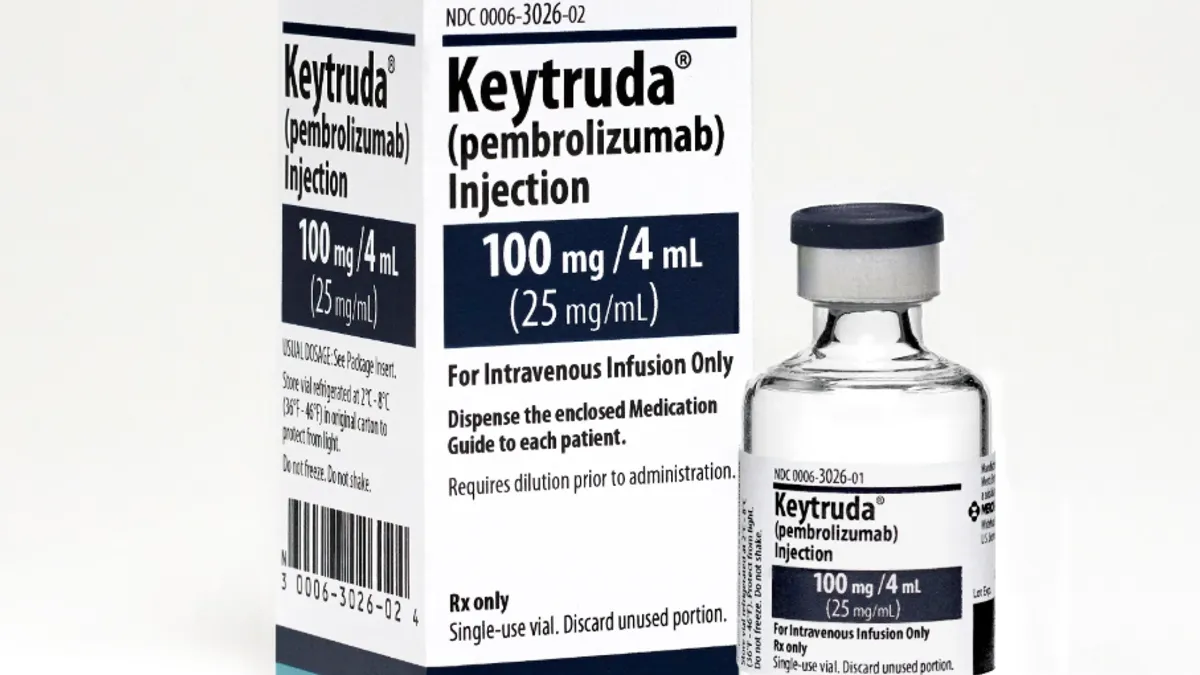Developing a New Class of Therapeutics
 Kevin Lee, Ph.D., CEO of Bicycle Therapeutics, talks about the company’s research to develop a new class of therapeutics using synthetic peptides, small molecules with antibody properties.
Kevin Lee, Ph.D., CEO of Bicycle Therapeutics, talks about the company’s research to develop a new class of therapeutics using synthetic peptides, small molecules with antibody properties.
The war on cancer may soon have a new treatment in its arsenal. Bicycle Therapeutics is developing a new class of therapeutics to treat cancer and other debilitating diseases based on its proprietary bicyclic peptides platform.
The bicyclic peptides (Bicycles) are designed to rapidly penetrate the tumor, delivering payloads selectively to where they are needed while minimizing exposure to normal tissue and associated toxicities.
Bicycles are a synthetic peptide hybrid that combine the attributes of antibodies, small molecules, and peptides within one molecule. In this way, these small molecules can overcome some of the limitations of each. For example, classic small molecules distribute widely in the body but are difficult to use as highly selective agents.
Bicycles are highly constrained bicyclic peptides, typically between 9 and 15 amino acids in size. According to the company, the structural constraint, delivered using a variety of proprietary molecular scaffolds, results in molecules with antibody-like target specificity and high affinity as demonstrated by the Bicycle Therapeutics’ affinity work against diverse targets and target classes, including enzymes, proteases, receptors, GPCRs, surface ligands, and secreted proteins.
“Bicycles offer the best of both worlds — small molecules and antibody drug conjugates," says Kevin Lee, Ph.D., CEO of Bicycle Therapeutics. “Bicycles have a high affinity and are highly selective. And like small molecules, they fully penetrate the extravascular space. The other important aspect of Bicycles is that they are renally excreted, so we don’t have the associated problems of antibody drug conjugates with liver circulation and metabolism."
Bicycle Therapeutics is developing Bicycle Drug Conjugates (BDCs) that selectively deliver toxins to tumors, killing them with a high  degree of precision and minimal effects on healthy cells. The company’s first application of the technology will be with solid tumors, including non-small cell lung carcinoma, triple-negative breast cancer, and soft tissue sarcomas.
degree of precision and minimal effects on healthy cells. The company’s first application of the technology will be with solid tumors, including non-small cell lung carcinoma, triple-negative breast cancer, and soft tissue sarcomas.
“Bicycles’ attributes lend themselves very nicely to oncology, which is why we are focusing on this area first," Dr. Lee says.
Antibody drug conjugates on the other hand, Dr. Lee says, are toxic agents that attach to an antibody in an attempt to selectively deliver the toxic agent into tumor tissue.
“This approach works but essentially this is like taking a weapon of mass destruction and changing its exposure in the body from a couple of hours to weeks or months because antibodies have long half-lives," he says. “Even though the antibody is targeting the tumor, it’s still circulating in the body for a long time and there can be off-target toxicity, through liver processing."
Additionally, because the antibodies are large, they cannot penetrate solid tumors.
“With BDCs, we have the targeting ability of a small molecule," Dr. Lee says. “BDCs fully penetrate tumors in 20 minutes, delivering toxins very quickly into the center of the tumor, and then are eliminated very quickly. Our BDCs are only in the body for about an hour."
The company was founded based on technology developed at the MRC Laboratory of Molecular Biology in Cambridge, U.K., by Sir Gregory Winter and Professor Christian Heinis.
Dr. Lee explains that Dr. Winter discovered that the technology used for antibody phage display can be used with peptides. Phage display is a laboratory technique for studying protein interactions. Bicycle Therapeutics is able to change the structure of the peptides, which puts constraints on the molecule, making the molecule more likely to bind with the receptor.
“Peptides are classically very floppy, with the functional groups moving in all directions," he says. “Whereas with a constrained molecule, the functional groups that are important to target engagement are locked in their preferred position for a great proportion of the time."
Bicycles can be used as stand-alone therapeutics or as BDCs delivering other molecules or nucleic acids to tissues or tumor-specific antigens.
The Bicycles are cleared from the body by the kidney instead of the liver so there are no liver or gastrointestinal side effects often seen with other cancer therapies.
In preclinical models, this BDC approach has shown considerable promise and has allowed the company to deliver 10-fold higher levels of toxins, while exposing the body for less time and yet maintaining efficacy over toxin alone or ADC.
The company’s lead molecule, BT1718, is expected to enter the clinic in the second half of this year to treat solid tumors. BT1718 uses a bicyclic peptide linked to an anticancer agent.
Cancer Research UK’s Centre for Drug Development (CDD) will sponsor and fund a Phase Ia and Phase IIa clinical trial of BT1718. The potential product targets Membrane Type 1 Matrix Metalloproteinase (MT1-MTP), which is highly expressed in many solid tumors, including triple negative breast cancer and non-small cell lung cancer.
In December 2016, the company was selected as the winner of the best Drug Delivery Technology category in the Fierce Innovation Awards for Life Sciences 2016.
Outside of oncology, Bicycle Therapeutics last year formed a partnership with AstraZeneca in the area of respiratory and cardiovascular and metabolic disease. (PV)



















